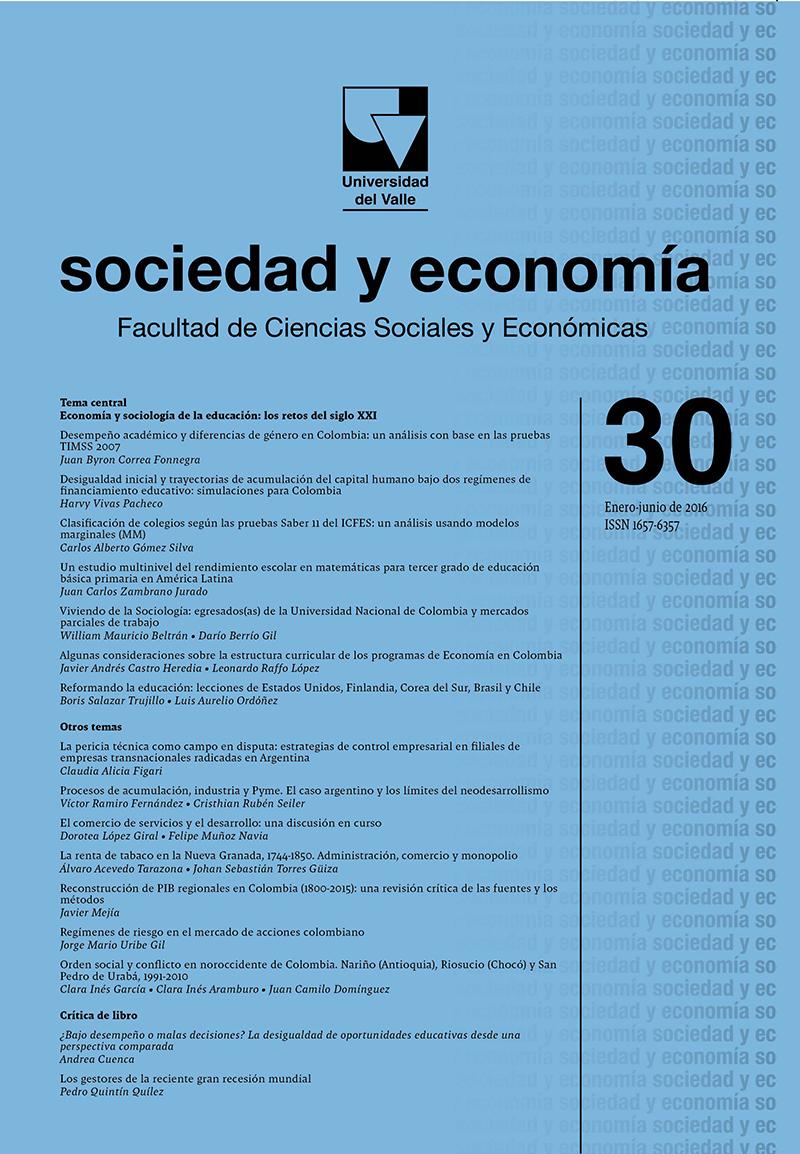Initial inequality and trajectories of human capital accumulation under two regimens of educational financing: Simulations for Colombia
Published:
2016-01-15
Keywords:
human capital, initial inequality, centralized regimen, decentralized regimen, dynamics simulation.Main Article Content
This paper studies the dynamic relationship between local socioeconomic environment,initial inequality in family incomes and impacts on the trajectories of accumulation ofhuman capital in Colombia. The study compares the dynamic trajectories of a centralizedfinancing system of education services, and a decentralized system in which educationalcosts are financed with local resources or with own resources of families. The study resultssuggest that when there is an initial severe heterogeneity in resourcing of families,in the long term an economic and social system with strong central government in thefinancing of education spending is more efficient than one in which the resources forthe provision of educational services come predominantly of own resources of familiesor from the tax rates to local rents.
1.
Vivas Pacheco H. Initial inequality and trajectories of human capital accumulation under two regimens of educational financing: Simulations for Colombia. soc.eco [Internet]. 2016 Jan. 15 [cited 2026 Mar. 4];(30):43-68. Available from: https://sociedadyeconomia.univalle.edu.co/index.php/sociedad_y_economia/article/view/3900
Downloads
Download data is not yet available.
Revista sociedad y economía editada por la Facultad de Ciencias Sociales y Económicas de la Universidad del Valle se encuentra bajo una Licencia Internacional Creative Commons Atribución - No comercial 4.0
Basada en una obra en http://sociedadyeconomia.univalle.edu.co

